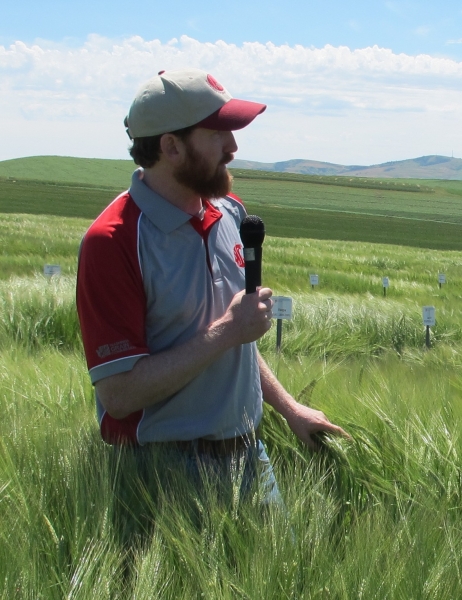Food Quality
Conservation tillage and cover crop systems for organic processing tomato production (Year 2)
The production of organic processing tomatoes requires large inputs of organic sources of nitrogen. Besides the addition of compost, manure, and other organic amendments, leguminous cover crops, grown during the winter, are important sources of nitrogen for a subsequent tomato crop. Present management of cover crops for tomato production generally requires significant amounts of tillage that may retard the improvement of physical and chemical properties of the soil.
Organic Food Barley: Developing Nutritious and Delicious Varieties for the Pacific Northwest
 Researchers from Washington State University have been breeding and selecting hulless food barley types for almost a decade with the goal of releasing high yielding, nutritious barley varieties in this novel market class. Now in the final stages of this project, they will work to identify the advanced breeding lines most adapted to organic farmers in Washington State and Northern Idaho. In addition, the researchers propose to develop a truly comprehensive nutritional evaluation and a flavor profile of
Researchers from Washington State University have been breeding and selecting hulless food barley types for almost a decade with the goal of releasing high yielding, nutritious barley varieties in this novel market class. Now in the final stages of this project, they will work to identify the advanced breeding lines most adapted to organic farmers in Washington State and Northern Idaho. In addition, the researchers propose to develop a truly comprehensive nutritional evaluation and a flavor profile of
Farm Made: A Guide to On-Farm Processing for Organic Producers
There are two obvious barriers organic producers face when they consider on-farm processing. The first is psychological. On-farm processing can appear intimidating and beyond reach, on one hand; on the other, it may seem unnecessary to someone who is already “adding value” by raising crops or livestock organically. The second barrier—a more pragmatic one—is the lack of good, producer-friendly information on small-scale organic processing and handling.
Developing an organic commercial production system for the Goji berry
Summary
Investigator: Norma Wilson, Butterfuly Hill Plants, Lovettsville, VA
Project location: Lovettsville, VA
Co-managing biodiversity conservation and food safety on organic farms
Summary
Coordinator: Jo Ann Baumgartner, Wild Farm Alliance, Watsonville, California
Stakeholders: Organic producers in the U.S.

